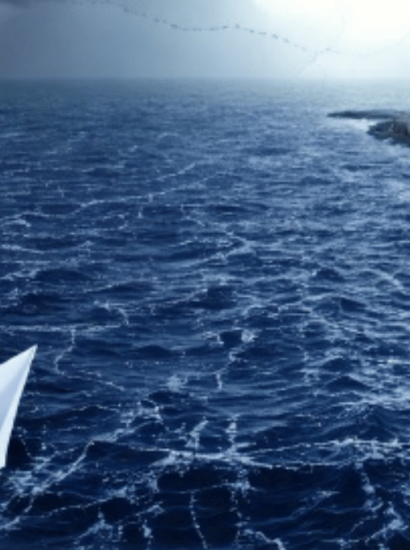This post is also available in: ΕΛΛΗΝΙΚΑ (GREEK) TÜRKÇE (TURKISH)
It’s as if we were reading an open book, when we wrote last Sunday that, “In the Cyprus problem, we have learned to walk on the tightrope of propaganda produced by each government, which is thrown to public opinion as fodder for wide consumption, serving the lucrative status quo of those in power.”
Thus, even before the UN General Assembly was concluded, the statement of Nikos Christodoulides (28.08.2023), “that during the month of September, in view of the UN General Assembly in New York, there will be developments in the direction of resuming the talks from the point where they were interrupted in Crans-Montana”, was first and foremost pulverised by Turkish President Tayyip Erdogan. From the podium of the General Assembly, he called on the international community to recognize the “TRNC”, arguing that everyone now recognises that the model of a federal solution cannot be implemented.
His statement on Greek-Turkish relations and on the meeting with Mitsotakis was highly indicative: “Our goal is to dispel the turbulent atmosphere in the Aegean and Mitsotakis’ approach is in this direction”. It is characteristic that the Cyprus issue was absent from the separate announcements of the two and only issues that serve the ‘positive agenda’ policy were mentioned.
Mitsotakis, knowing that he could not avoid mentioning the Cyprus problem without being swallowed alive by ‘ethno-political correctness’, according to some reports, told Erdogan that something should be said about the Cyprus problem, with the ‘sultan’ whistling indifferently. So Athens has managed communication of the issue by leaking to the media that Greece does not discuss and does not accept a two-state solution in Cyprus, as well as the need for a trilateral meeting between Christodoulides-Tatar-UN and the appointment of an envoy by Guterres to restart the talks.
Nikos Christodoulides replied to Erdogan from the General Assembly podium that “the illegality resulting from the invasion, aggression and use of force cannot be recognised”, which brought to mind the now void ‘monument-slogan’ of the T/C leftists, “Peace in Cyprus cannot be prevented”!
In essence, Greece and Turkey agreed on issues where their views converge, such as strengthening cooperation on Civil Protection, migration and the normalisation of the atmosphere in the Aegean. The roadmap prepared includes three meetings until the end of 2023: 1- in mid-October for the political dialogue and the positive agenda between Deputy Foreign Ministers, 2- in November for the Confidence Building Measures and 3- Greece-Turkey High Level Cooperation Council meeting in Thessaloniki on December 7, which according to Erdogan will be “an important leap forward between Turkey and Greece”.
The Turkish President also set conditions, stating, “As Turkey and Greece, we must avoid steps and statements that will damage the environment of trust. We must take steps together in order for the upcoming process to proceed safely.” Can one suspect that this is why the Cyprus issue was not touched upon? I believe that this is an important but implicit precondition for the success of the Greek-Turkish project which, as we noted last week, Washington is also looking forward to.
But the Turkish president’s visit to New York screamed that he went there with a leadership agenda. An agenda of an Eastern Mediterranean regional leader and one of the most powerful leaders on the planet. He showed that when he spoke at the GA [General Assembly] for 10 minutes longer than planned. He criticised the five members of the SC [Security Council], stating that the body should be opened up and enlarged, while the leaders of four of its members (Britain, France, China and Russia) were not present at the GA.
In fact, because Biden refused to see Erdogan, the Turkish president craftily cancelled the meeting with Guterres and instructed his foreign minister to go to the UNSG. Back in Turkey, Erdogan spoke to reporters about Ankara’s plans on the Cyprus problem, without mincing words: “It is now clearly understood that the formulas for a federation are not realistic and will not work.
The rejection of this truth is nothing but the imposition of a deadlock on the island. We have tried to find a two-state solution, a just and permanent one in Cyprus. We have called on our interlocutors to ensure this. We made yet another appeal to the international community. The recognition of the TRNC as an independent state is the only and most effective step that will contribute to a solution to the Cyprus problem. We do not recognise any other options other than that. We are determined to preserve the rights of the TRNC to the end, within the framework of the guarantor’s right granted to us by international law. We expect that the door opened by its accession to the Organisation of Turkic States as an observer member will continue. The recognition of the TRNC as an independent state by one country after another serves peace and tranquillity in the Eastern Mediterranean.” Erdogan concluded by revealing that “our next road map includes effective steps to be taken towards the full protection of the TRNC’s rights and its integration into the international system.”
What was Nicosia’s reaction to Erdogan’s statements? Nikos Christodoulides leaked to the CNA [Cyprus News Agency] that, “The possibility of a joint meeting between the UNSG Antonio Guterres, the President of the Republic, Nikos Christodoulides, and the TC leader Ersin Tatar remains on the table, following his separate meetings with them in New York on Friday and Saturday, respectively, if not in the immediate future”… How timeless Guterres’ wish proved to be in the final moments of Crans-Montana, when Anastasiades, Christodoulides and Kotzias were dancing on the wreckage of the Cyprus problem: I wish Cypriots good night and good luck…
Source: ERDOĞAN DID NOT MINCE HIS WORDS







[…] ENGLISH (İNGİLİZCE) ΕΛΛΗΝΙΚΑ (YUNANCA) […]